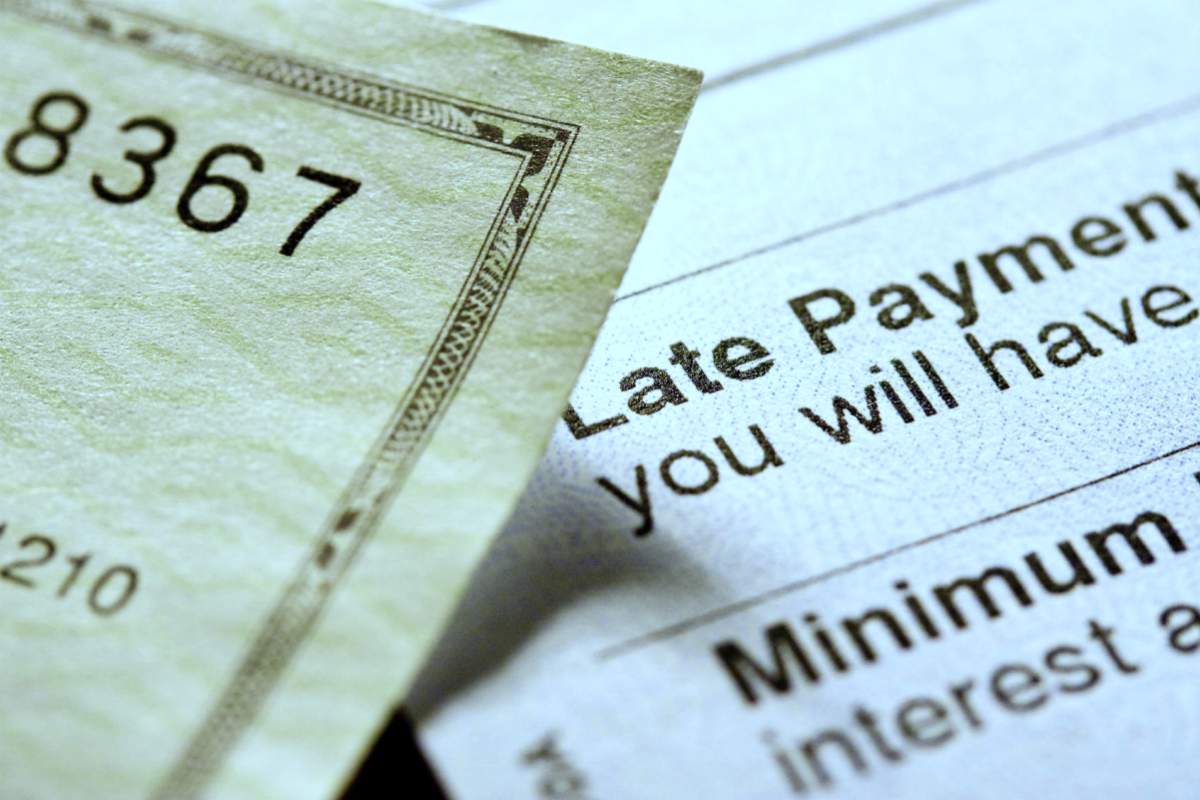Here are important facts about a failure to file penalty that around 5% of taxpayers — approximately 7 million Americans — will find helpful.
Failure to File Penalty: A Primer
1. Tax Penalties: What You Get When You File Late
Taxpayers should file their tax documents on April 15 or the next business day if the 15th is a weekend or a holiday. Filing one day after the deadline already constitutes late filing.
Being late or delinquent with your taxes is a surefire way to get in the sights of the IRS. Also, being behind in the filing of your taxes can lead to a Letter 2566 from the IRS. With the letter is a substitute tax form that may not have all the deductibles and benefits, which can lead to higher tax payments. Lastly, unpaid taxes that are way past due can result in a tax lien, which can lower your credit score.
Of course, you can also receive penalties. The law, specifically the Internal Revenue Code Section 6651, gives the IRS the ability to levy penalties. These two are the failure to file and the failure to pay penalties.
2. Failure to File Penalty: For Those Who Forgot to File
If you filed your tax returns after the deadline, usually April 16 or the business day after the 15th, then the IRS will give you a failure to file penalty. Please do note that if you have incoming tax refunds, the refunds will apply to the unpaid taxes first.
The failure to file penalty can eat up your finances. For every month of unpaid taxes, the late taxpayer will pay a 5% penalty fee for failing to file taxes. However, do not worry; the law protects taxpayers from having too many penalties with the penalty capped at 25%.
For example, if the deadline is April 15 and you filed your tax returns on May 1, you will receive a penalty amounting to 10% of unpaid taxes. The unpaid taxes do not need to reach 30 days for taxpayers to receive a penalty; reaching a part of the month with delinquent taxes will automatically lead to an additional penalty.
Another important thing to note is the minimum penalty. As of 2018, the minimum penalty as per IRS 2017-51 is the lower amount between $205 or 100% of the unpaid tax for returns filed over 60 days late.
3. Failure to Pay Penalty: For Those Who Paid Late
Together with the penalty from failing to file your taxes, the IRS can also levy a failure to pay penalty. Both usually come together however they come from two different causes. You can have a failure to pay penalty without a failure to file one. For example, if you filed your tax returns on April 15 but paid the taxes on May 1, you have to pay the penalty.
The penalty is surprisingly not big; the failure to pay penalty is only .5% of the unpaid tax. The failure to file penalty is actually ten times larger. The penalty has a cap of 25%, just like the failure to file penalty.
Similar to the failure to file penalty, the minimum penalty is the lower amount between $205 or 100% of the total unpaid taxes for returns filed more than 60 days after the due date.
4. Penalties Have a Cap
As discussed previously, both penalties have a cap of 25% of the total unpaid taxes. Together, all penalties can only reach up to 50%.
However, if the late filing and non-payment of taxes are due to fraud or criminal negligence, the cap can go much higher. Typically, it can increase up to 75% of the total amount of unpaid taxes.
5. The IRS Can Give Extensions
Failure to file penalties are ten times larger than failing to pay penalties. For taxpayers, it is better to file for a tax extension. Tax extensions usually last for 6 months. However, certain people, like military personnel in active duty and combat zones, can receive longer extension periods.
The IRS Free File allows taxpayers to electronically ask permission from the IRS to extend the filing of their taxes. Knowledge about the Form 4868 will also help taxpayers on how to convince the IRS to give you an extension.
It is important to emphasize a clarification. A tax filing extension can postpone the failure to file penalty, but the failure to pay penalty still applies.
6. Filing and Paying 90% Will Stop the Failure to Pay Penalty
Paying 90% of the unpaid taxes can postpone the application of the failure to pay the penalty. If you are still unsure of the total tax amount, the IRS usually takes off the failure to pay the penalty if you pay 100% of your previous tax amount.
If you file for a tax extension and you pay 90% of your current tax or 100% of your previous tax amount, then both penalties stop.
7. No Penalties If You Can Show Reasonable Cause
The IRS wants your taxes, not your financial ruin. If you can prove reasonable cause for the late filing or payment of taxes, the IRS may cancel the penalties.
A common example would be a disaster declaration. In 2018, hurricane Michael affected a lot of people. The IRS preemptively extended the tax filing deadline to October 15.
You can always call the IRS for more personalized reasons. As long as there is no negligence on your part, the IRS can permit you an extension for a reasonable amount of time.
8. Late Filing Will Have Additional Fees on Top of Penalties
Penalties are not the only bad news whenever you are late with filing tax returns. The IRS levies an interest as well on your unpaid taxes. The current interest rate is 3% plus the federal short-term rate. This means that your tax penalties and interest are more expensive than most loans you get from banks.
For instance, the federal interest rate for the first quarter is 1.18%. For unpaid taxes that remain unpaid for the first quarter, the taxpayers will pay three expenses. First, the taxpayer must pay the failure to file penalty of 5%. Second, the failure to pay penalty of .5% also appears in the letter for payment. Lastly, the unpaid taxes will see an increase of 4.18% due to the interest rate applied to unpaid taxes.
9. Filing and Paying Taxes Late Can Make Retirement Difficult
Most people invest for retirement, and with investments and financial transactions, taxes follow. The penalties and interest taxpayers pay for unpaid taxes can push retirement dreams even further away. Your credit score can also see a dramatic decrease if you get a tax lien. Cash that you pay for interest and penalties could help you reach retirement earlier.
Watch this video for more information about penalties for filing taxes late from GBR:
Taxes are necessary for government operations, and it is our responsibility to pay them if we want to live in a civilized and orderly community. It is best to get your paperwork in order now so when the deadline is just around the corner, you will have peace of mind that you did yourself a favor and the confidence that you have done your civic duty.
Are you ready to file your taxes? Do you have other facts and experiences you want to share? How about questions about tax processes? Let us discuss on the comments section below.
Up Next: IRS Forms And How To Fill Them Out | Your Easy IRS Form Tax Guide




